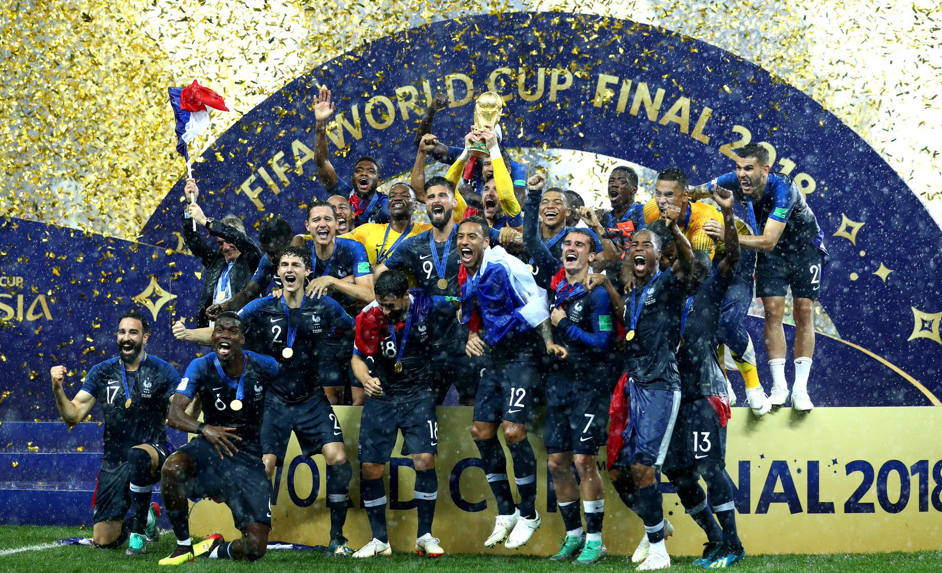FIFA Clearing House Rollout Highlights Capability Gap At Many FIFA Member Associations
November 1, 2021
Jason Anderson and David Fowler look at how a new initiative being launched by FIFA is showing just how much work there is to be done at many member associations in order to catch up on their data processes.
In June 2018, FIFA first proposed to license and operate a new “Clearing House” to centrally manage transfer payments. Some in the football world thought it would never happen.
The FIFA Clearing House was borne out of FIFA’s own research which showed that an increasing number of clubs were not fulfilling their payment obligations in relation to training compensation and solidarity contributions — collectively referred to as “training rewards”. First introduced in FIFA’s Regulations on the Status and Transfer of Players (RSTP) in 2001, these payments are supposed to be triggered when a player signs his* first professional contract or transfers internationally. The intent is to reward the player’s training club(s) for their contribution to his development. Historically, less than 10% of these payments are paid.
“To power this new global transfer payment system, FIFA requires each of its 211 member associations to implement electronic player registration systems that provide registration information for all players.”
On 25 September 2018, FIFA’s plans to address this went public as the Football Stakeholders Committee gave their stamp of approval to the Clearing House. Centralising the payment of solidarity and training compensation, agents’ commissions and transfer fees will have a profound effect on the business of amateur football, but are FIFA’s Member Associations equipped to deliver on FIFA’s promises?
To power this new global transfer payment system, FIFA requires each of its 211 member associations to implement electronic player registration systems that provide registration information for all players — amateur and professional — from the age of 12, via the FIFA Connect Service. To remove any doubt, the latest FIFA RSTP states emphatically that, “only electronically registered players identified with a FIFA ID are eligible to participate in organised football.”
FIFA’s Member Associations are now waking up to the realisation that FIFA is serious about enforcing compliance with their digital reforms. Despite multiple delays, the FIFA Clearing House is expected to launch in early 2022 and FIFA has been busy emailing its member associations to inform them of the penalty for non-compliance. The member association — not the signing club — will be responsible to pay training compensation claims in cases where the member association’s systems or data are found to be non-compliant.
“What is becoming increasingly clear is that many member associations are simply not equipped to manage technology projects of such complexity.”
What is becoming increasingly clear is that many member associations are simply not equipped to manage technology projects of such complexity. Building bespoke, mission-critical solutions without an experienced technology lead and support team is a recipe for financial and compliance disaster. Off the shelf, SaaS registration and competition systems can be part of a solution but not all are created equally and a subscription does not equal compliance.
Our advice to member associations is that boots on the ground with an understanding of your unique requirements — as well as FIFAs — are essential. In essence, FIFA have created a new industry, but with few experts and no one-size-fits-all solutions.
The good news is that FIFA’s reforms are creating commercial opportunities for member associations that can manage the inherent complexity. Done properly, electronic player registration and competition management solutions should form a foundation to engage with players, parents & fans while creating value for sponsors and generating significant ROI for the member association.
About The Authors
Jason Anderson is COO and co-founder of Inqaku FC, developers of South Africa’s only FIFA-integrated digital player registration platform, MYSAFA. With over 400K players and 8,000 clubs registered and assigned FIFA IDs to date, MYSAFA is by far the most successful sports registration and competition management system in Africa.
David Fowler is a Co-Founder of SportsTech Match (and Digital & Data Consultant at iSportConnect). SportsTech Match was founded in 2020 and aims to simplify the procurement of sports technology solutions. Sports federations, leagues and teams at all levels can submit anonymous Requests For Information via SportsTech Match and be matched with the vendors best placed to deliver on their unique requirements.
Contact Jason or David to discuss how they can help you define your requirements, connect you with the right solutions and ensure that you approach FIFA’s RSTP reforms as an opportunity for growth rather than a never ending exercise in compliance and spiraling costs.
*To date, training rewards are only applicable to men’s football.



